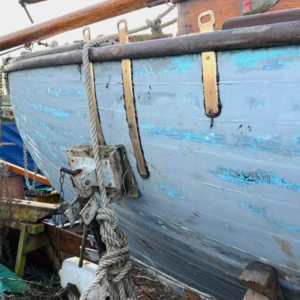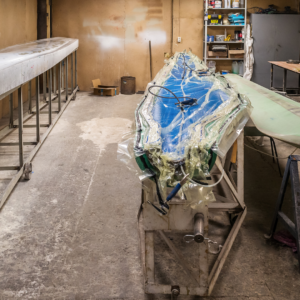Trade Secrets: Ask Hamish- Avoiding ‘orange peel’ effect
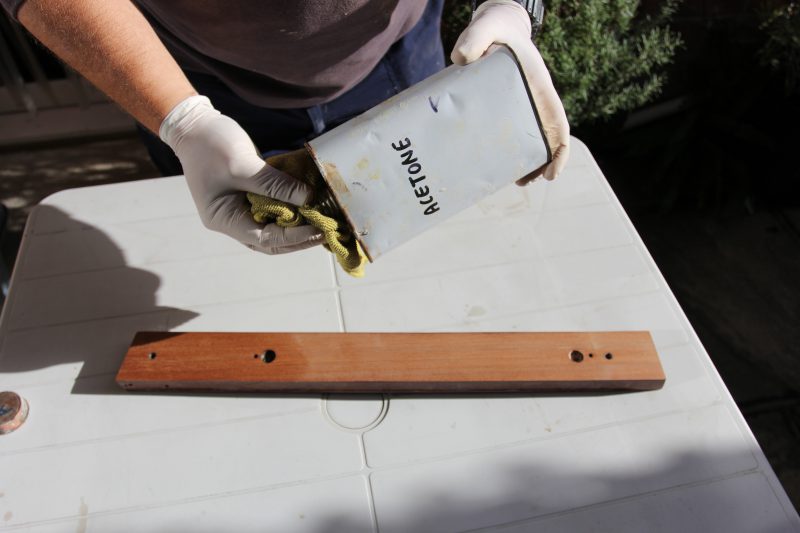
Avoiding ‘orange peel’ effect
You’ve applied a fresh coat of resin and hardener mix, and the coat seems to have fish-eyed into a series of tiny craters. What has caused this, and how do you prevent it from happening again?
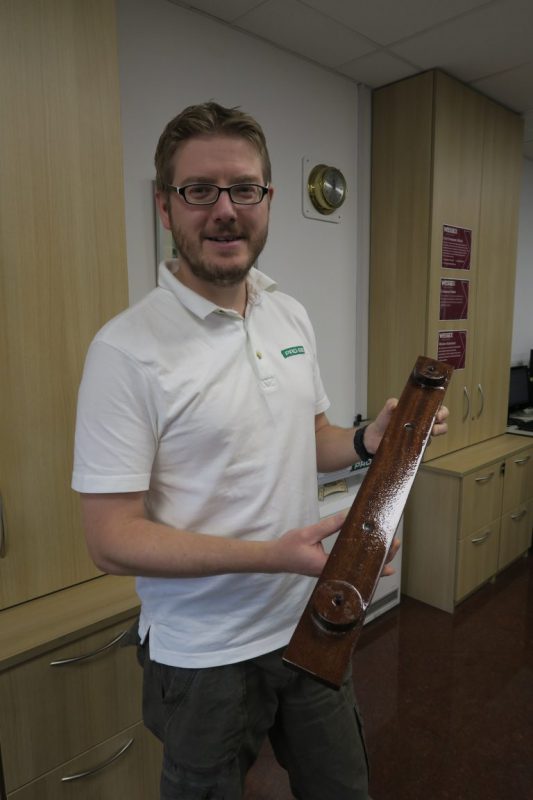
“The piece of wood in the photo is typical of what can happen when it hasn’t been properly prepared for epoxy coating,” Hamish says. “This is a piece of mahogany and the customer explained that it had been originally coated with polyurethane varnish. This was removed using paint stripper and the piece was thoroughly abraded back to bare wood. Then a coat of WEST SYSTEM 105 with 207 special coatings hardener was applied. (The 207 hardener is used when a piece of wood is to be varnished, as it brings out the full luster of the grain). This orange peel effect was noticed shortly afterwards, so what has happened?
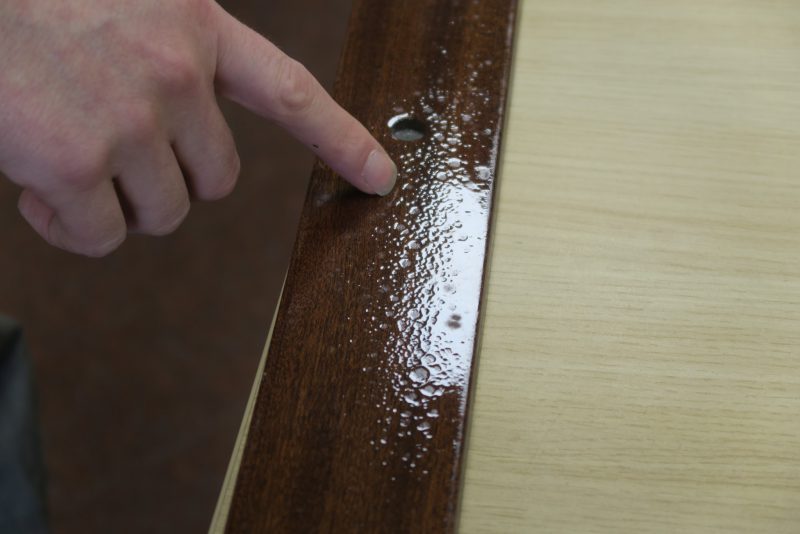
The surface has some kind of contamination. This is because abrading back to bare wood is only part of the preparation process. Despite fresh timber being exposed, it could still contain traces of contaminants from the original coating. Teak is also a naturally oily wood, whilst oak – another popular DIY timber – contains sap-based chemicals on the surface that can affect a proper cure unless wiped away.
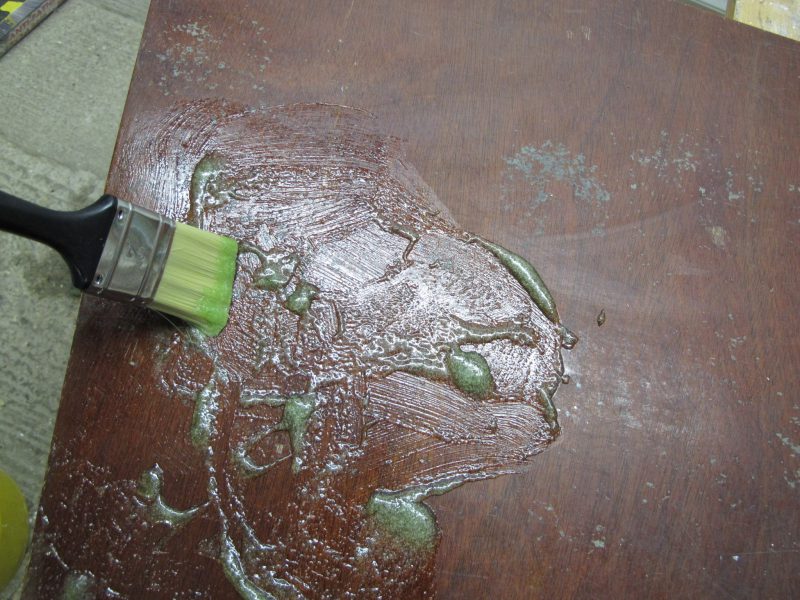
The best way to eliminate contamination is to ensure all previous coatings have been completely removed. This can be done with chemical stripping, as seen here, or abrasion. Once the wood is completely bare again then it will need a wash to remove the stripping chemicals from the surface.
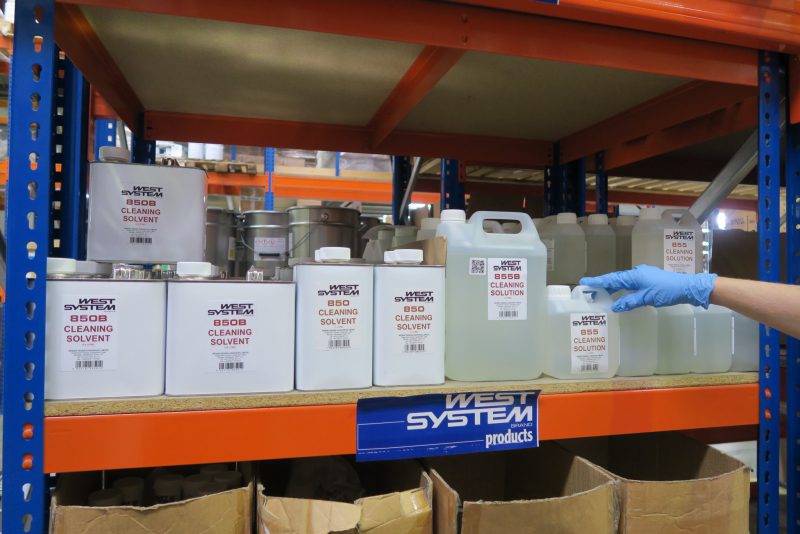
When it comes to degreasing, WEST SYSTEM 850 Cleaning Solvent is perfect for wiping the surface to remove contamination.
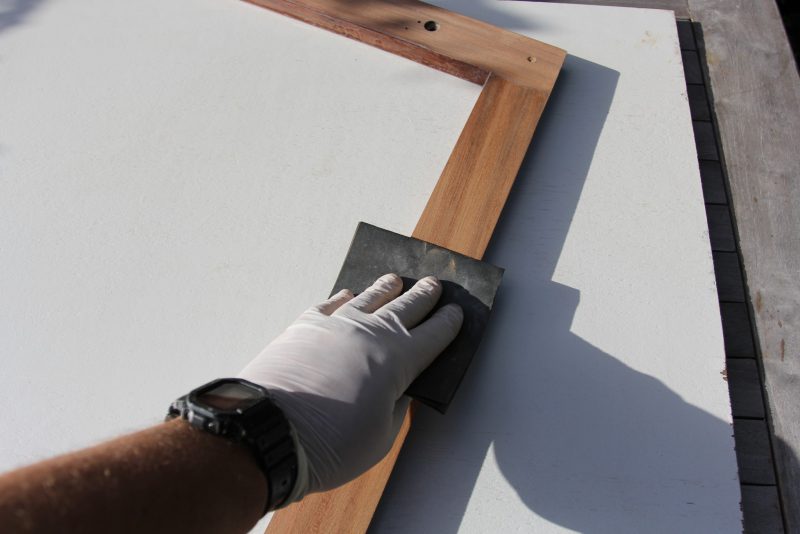
With the wood completely dry, prepare the surface for epoxy coating by abrading again. The grit used should be 80-grit, as this gives an excellent key to the first couple of coats. Any abrasion marks are quickly filled and disappear.
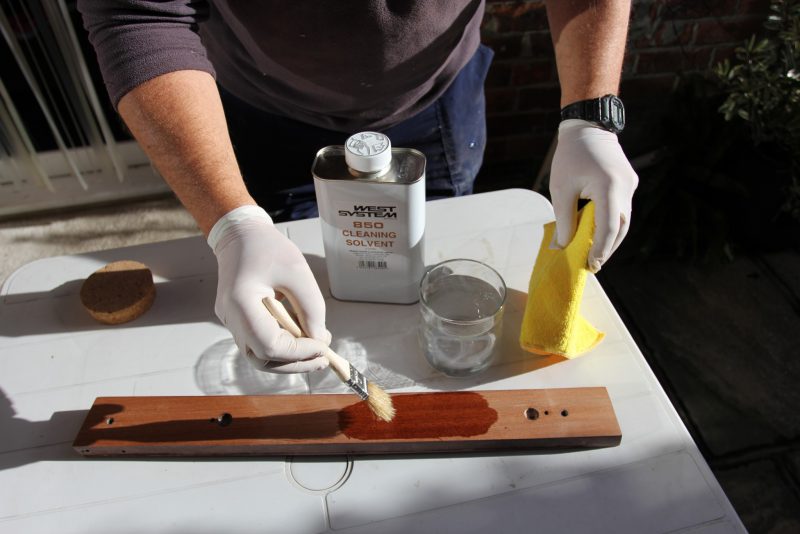
Brush off the dust and then degrease the timber again with a solvent. You can use acetone, but avoid any spirit-based solvents. Formulas like household White Spirit are packed with oils that will compromise the coating.
WEST SYSTEM has its own formulation of cleaner, the 850 Cleaning Solvent mentioned above. This has been designed for the best decontamination before overcoating, and consists of Acetone supplemented with other solvents to reduce the flash-off time so cleaning can be done at a more leisurely pace.
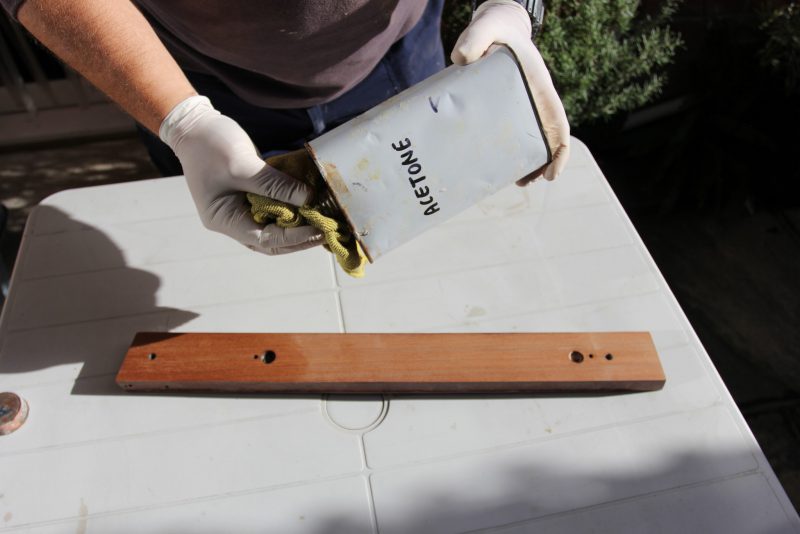
TOP TIP: This applies to any kind of chemically assisted cleaning – don’t place the used part of the cleaning cloth over the mouth of the solvent container to decant each dose of cleaner. We’ve all done it, but after a few wipes, dirt and oils on the cloth are washed back into the container to contaminate your solvent. Best practice is to decant a little into a jar and use that instead, ensuring a clean section of cloth is used for each pass. Alternatively, use a fresh paper towel for each pass.
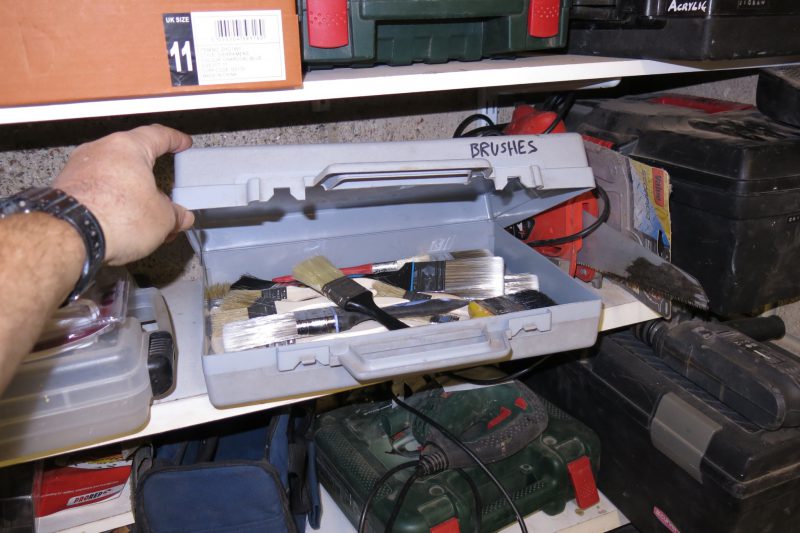
Don’t overlook your brushes and rollers. A common mistake in DIY workshops is to leave these items lying around, perhaps in a jar on the workbench, or in an open pack. Any airborne contaminates from aerosol polishes, WD40, or even airborne cooking oils from a nearby extractor fan, can settle on your rollers and later – often much later – affect the coating. Keep your brushes and rollers sealed up until you are ready to use them.
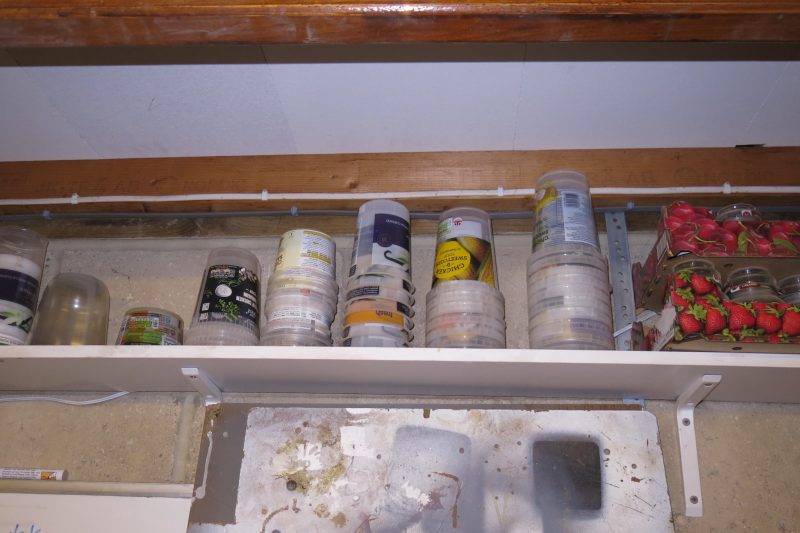
The same applies to mixing pots. These are often left stacked upright. Turn them upside down so no dust or airborne contaminants can settle inside. Also, don’t trust a pot that has been ‘cleaned’ unless you know the solvent is safe. This is very true of recycled food containers that may have been washed out with detergent or contaminated kitchen cloths. Always use a brand new mixing pot, or one that is scrupulously clean.
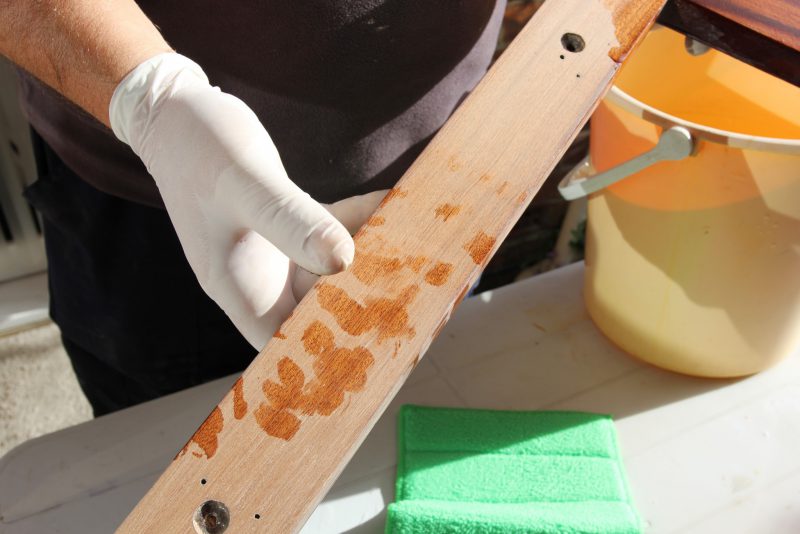
It’s also a good idea to wear gloves during the preparation process. Although very rare, some hand creams, soaps and even sweat can cause localised problems if absorbed into the virgin timber.
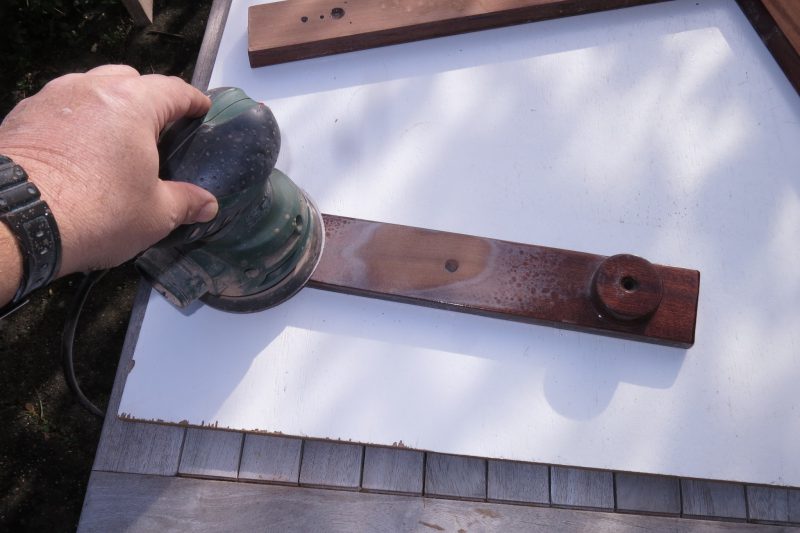
And if you do get orange peel – don’t despair. Let if cure, and then simply abrade it off and start again, this time taking care not to re-contaminate. The end result is worth the effort!

